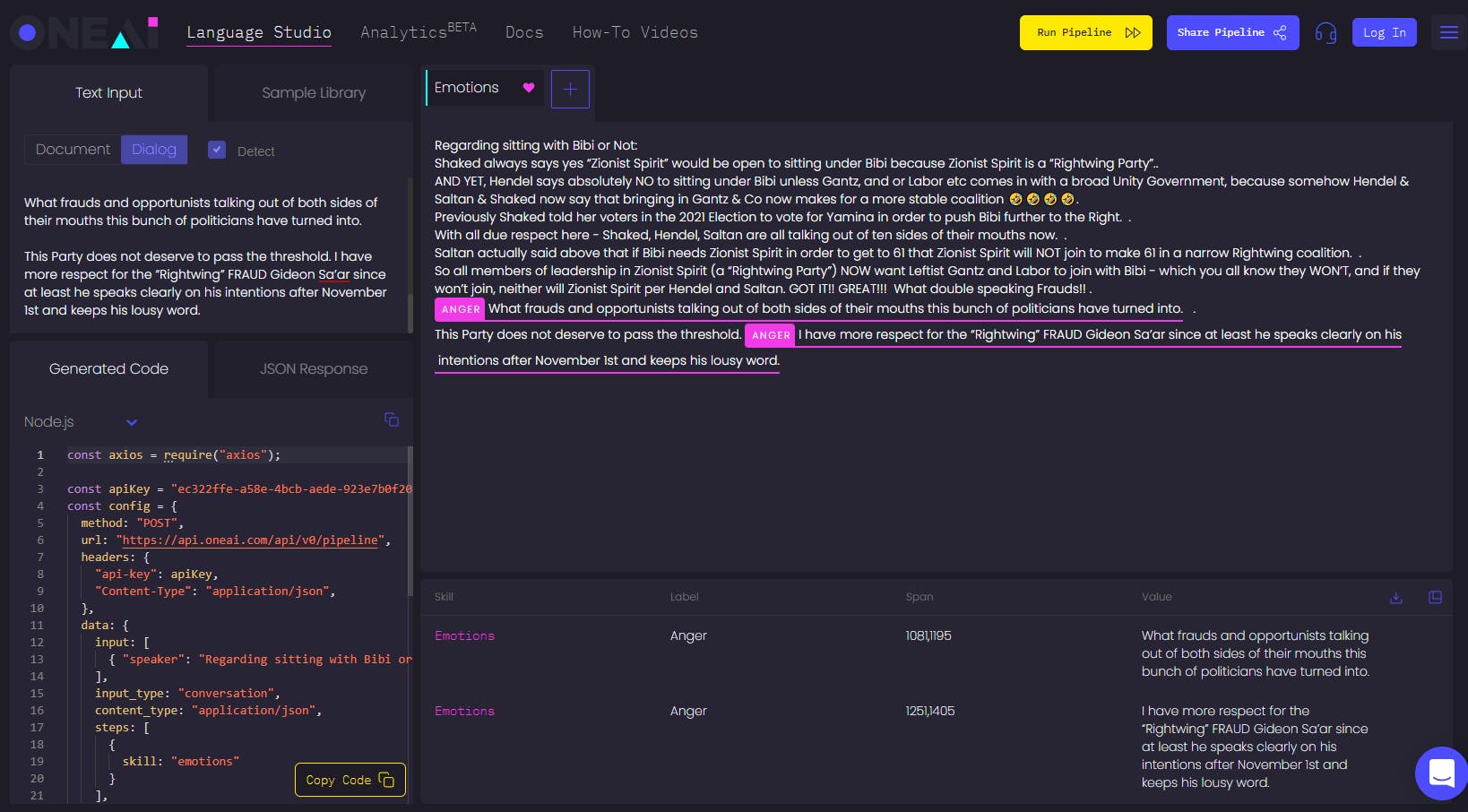Learning from AI is now easy. If you can get the data.
I read an article once, that Judges give more lenient judgments after lunch, than before lunch. I also read recently, that it may not true. It became a random disputed factoid in the back of my brain. That was, until I heard about a new API called OneAI.
I quickly became excited to validate the experiment for my own social circles. Would it be wiser to give bad news after lunch instead of before lunch? Would it be better to read/write on social media after eating instead of before eating? Would tempers be lower? Would conversations be more pleasant?
So, I jumped into Facebook to grab some text from some posts, and run them through the Emotion skill pipeline in OneAI to grab some emotional sentiment analysis. The results were quick and simple.

The political post I chose to check, was marked as "angry", and that matched my reading of the post as well. Even with the sarcasm, and the laughing emojis, the AI picked out the anger very quickly. Perfect! Now, I just needed to grab hundreds of posts, and push them into the pipeline, and get a rough summary based on it being either before or after lunch. Simple, I thought, everyone writes about this general workflow of finding out what people think in social media....
I was wrong.
First, I searched online, for how to grab a bunch of posts in twitter or facebook filtered by the time it was posted. That proved to be almost impossible. Then I looked at the Facebook Developer API, and again, was met by APIs which are intended to be retrieved by group, or person. Any filtering that you want to do based on time, you'll have to do yourself. Further more, you'll get the UTC time it was posted, but not the time for the person who did the posting.
I found it both ironic, and amazing that today, in 2022, it's easier to get some AI API to tell you what a person is thinking, feeling, or even to produce a tl;dr from a robot, than it is to get the actual data that you might want to use to learn something new yourself. Data is king they say, finding out how to collect and organize that data is difficult, even when it's out in the open. 20 years ago, it was easy to get the data, and hard to analyze it. Today, it's easy to analyze it with new accessible services like OneAI, but much harder to get the data.